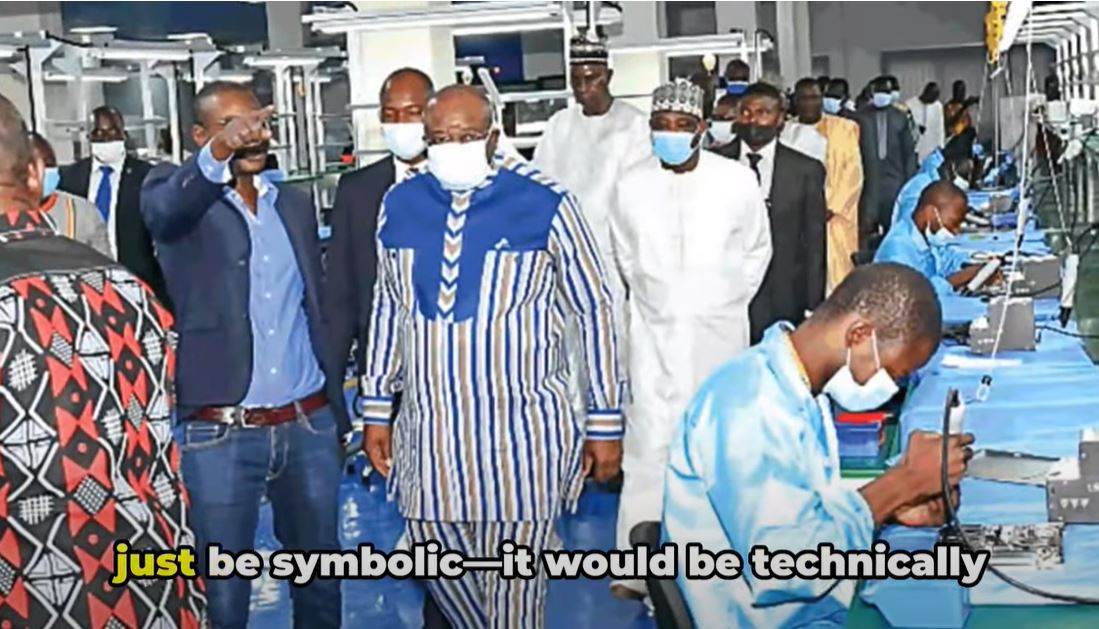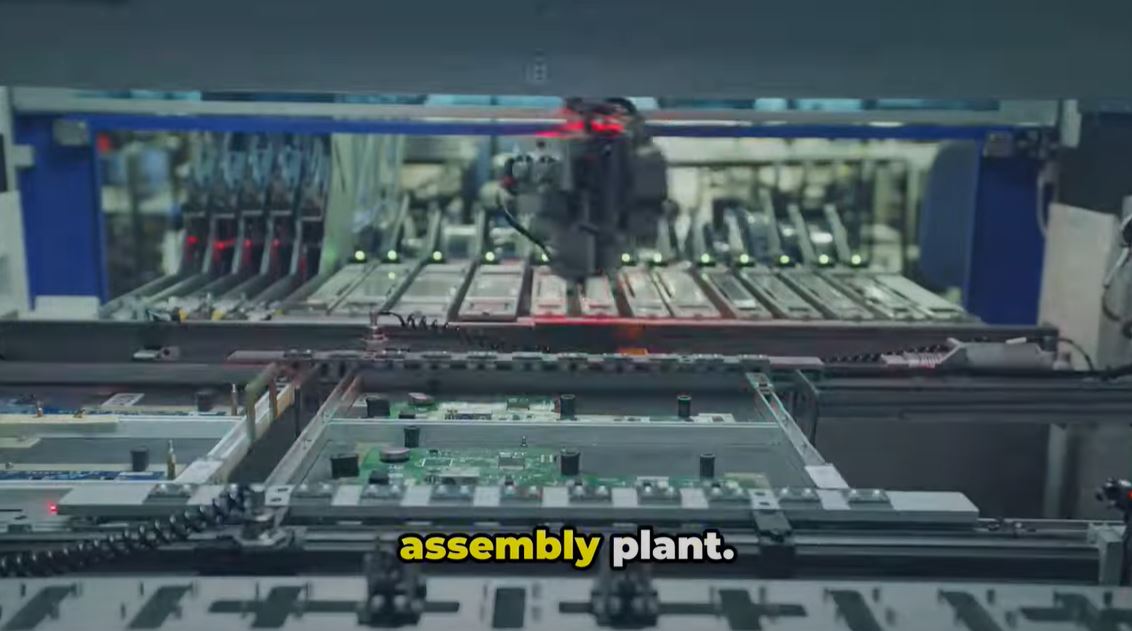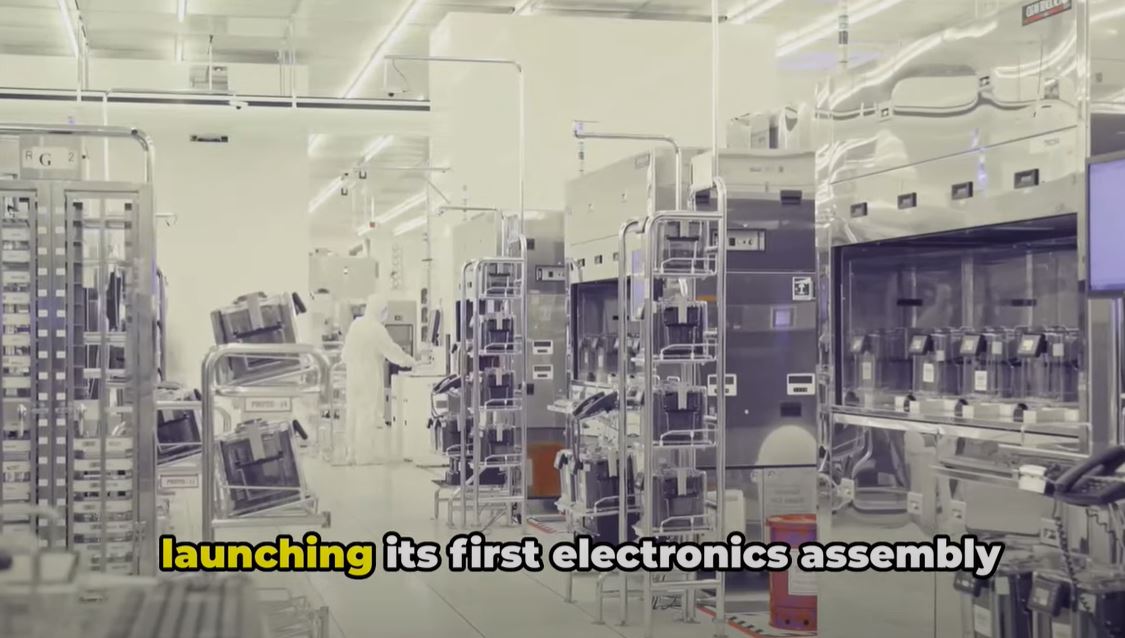**Headline: Burkina Faso and China Forge a Tech Revolution: A New Era for African Innovation**

In a groundbreaking move that could redefine the tech landscape of Africa, Burkina Faso has officially launched its first electronics assembly plant in partnership with Chinese tech giant Haier. This ambitious venture is not just about smartphones, laptops, and tablets; it represents a seismic shift in the continent’s economic sovereignty and technological self-reliance. The implications are enormous, as this collaboration aims to empower a nation hungry for innovation while challenging the traditional dynamics of tech production in Africa.
As global tech markets grapple with supply chain disruptions and rising costs, Burkina Faso is flipping the script by taking control of its technological destiny. For too long, the country has been a passive consumer of imported devices, with a digital readiness ranking that places it among the lowest in the world. With only 17% of the population connected to the internet and mobile phone ownership barely surpassing 50%, the need for accessible technology has never been more urgent. The new assembly plant, located in the Casodo industrial zone of Ouagadougou, is set to change that narrative.

Launched in April 2022, the factory is designed to produce devices tailored for the unique challenges faced by the African market. From extreme heat to unreliable electricity, these products are built to endure the rigors of daily use in Burkina Faso and beyond. The plant’s initial capacity of 200 devices per day marks a significant step toward meeting the rising demand for affordable technology among the youth and small businesses eager for connection and opportunity.
This initiative is more than just a factory; it serves as a hub for learning and innovation, where the next generation of engineers and technicians can gain hands-on experience in modern electronics manufacturing. By investing in local talent, Burkina Faso is not only addressing its immediate tech needs but also laying the groundwork for a sustainable future. The government’s commitment to expanding telecom infrastructure, including the installation of 800 new towers by 2025, further enhances the potential for growth and accessibility.

The partnership with Haier is particularly strategic, given Burkina Faso’s diplomatic pivot towards China in 2018. This alignment has opened the floodgates for development incentives, enabling the country to tap into established production ecosystems and high-quality components. By collaborating with a global leader in electronics, Burkina Faso is ensuring that its products are not just competitive but also sustainable in the long run.
The ripple effects of this initiative extend far beyond Burkina Faso’s borders. As other African nations observe this bold step, they are prompted to reconsider their own technological strategies. Countries like Nigeria, Kenya, and Ethiopia are already making strides in local assembly and innovation, signaling a broader movement toward self-reliance in tech production across the continent. If Burkina Faso can successfully navigate the challenges ahead, it could serve as a blueprint for others, inspiring a continent-wide shift from reliance on imports to a vibrant ecosystem of local manufacturing.

However, the road ahead is fraught with challenges. Infrastructure issues, particularly in power supply, pose significant hurdles for continuous production. Frequent power outages threaten the operational stability of the plant, but the government’s commitment to renewable energy solutions offers a glimmer of hope. Additionally, sourcing components remains a critical concern, as the plant currently relies on semiconductors and chips primarily manufactured in Asia. Establishing stable supply chains will be essential for the project’s success.
Despite these obstacles, the benefits of this initiative are tangible and transformative. Local production means more affordable access to technology, as the elimination of import taxes and shipping costs makes devices reachable for a broader segment of the population. This affordability is crucial for education and business, where downtime can have significant repercussions. Furthermore, as the local talent pool grows, the potential for innovation and entrepreneurship expands, paving the way for a new generation of tech leaders.

In a world where economic power dynamics are shifting, Burkina Faso’s electronics assembly plant stands as a testament to the continent’s potential. By reclaiming control over its technological landscape, the country is not only fostering economic growth but is also challenging stereotypes about Africa’s role in the global tech ecosystem. This initiative is a bold statement: Africa is not just a consumer of technology; it is a burgeoning creator.
As Burkina Faso embarks on this ambitious journey, the world will be watching closely. The success of this project could inspire a continent-wide movement towards technological independence, reshaping not only Africa’s economic future but also its place in the global market. With each device produced, Burkina Faso is not just assembling electronics; it is building a future where innovation thrives, and self-reliance reigns supreme. This is a story worth following, as it promises to change the narrative of African technology for generations to come.






